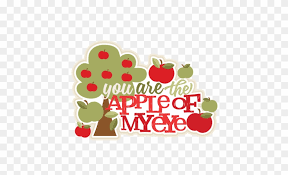Learning English Idioms and Phrases in Detail: Apple of Eye and Playing Devil's Advocate
Speak English like a Native: Apple of Eye

Using English Idioms Like a Native Speaker
ESL idioms are some of the hardest expressions to understand. They don’t make sense, and you cannot translate them directly. If you don’t know what a person is saying, the best thing to do is to take the context into consideration, or better yet, ask the person the meaning of the idiom. However, when we are learning a foreign language abroad, who do we have to ask? Especially if we don’t have regular access to a teacher. This is where great research and learning essentials come in. For example, the "Improve Your English in 5 Minutes a Day with Lee series", where you will learn how to use idioms like a native English speaker. With consistent practice, you will be using ESL English idioms like a native/natural in no time at all.
Note how I wrote, "You will be using ESL English idioms like a native/natural in no time at all." In this sentence, you can use either 'native' or 'natural.' Why? Well, you want to speak English naturally like a native speaker, so you can use the word 'natural' in the context. Whenever people do something very easily, we say that they are 'naturals.' For example, you are playing tennis with me for the first time, and you are doing great. Since this is your first time, and you are doing so well, I say to you, "You are a natural." Just like this, native speakers are naturals because they were born into the language. Now let's move on to our idiom of the day!
ESL English Expression: Apple of Eye
The best way to begin using esl idioms, is to start with one at a time. Today we will focus on 'Apple of Eye.' For example, imagine I just gave birth to a healthy baby boy, and as I look into my baby’s eyes, I say, “You are the apple of my eye.” What do you think I mean? Take a few moments to think about it before you continue reading.

Understanding how 'Apple of Eye' is Used
This English ESL expression literally means, “You are everything to me.” Generally, people are the apples of our eyes. These are people that we love very much. They are our mothers, fathers, sisters, brothers, children, and/or spouses. We would be lost if this person, the apple of our eye, were to die. We might even die for them ourselves. If they need it, we donate our very own organs to save their lives. This is how much we love them. So tell me, who is the apple of your eye?
Who is the apple of your eye?
Tell me who the apple of your eye is.
Use your Idiom even more like a Native English Speaker
On a more humorous side, we might look at a delicious cake that we have been wanting to eat for the longest and sigh, “You are the apple of my eye.” Of course, this is not to be taken as seriously when talking about a person, but it is only to express your intense want or desire for this delicious chocolate cake in a humorous manner. If you say that about a piece of cake, pie, or even a car, people will understand that you want those objects very badly.
Notice that with ‘apple of eye,’ we put in a pronoun. For example, you are the ‘apple of my eye.’ She is the apple of his eye. They are apples of our eyes. Now you know how to use our Idiom of the day! For a deeper explanation of ‘apple of eye’ watch the video down below.
Learn English Idioms: Apple of Eye
English ESL Idiom Writing Exercise
Now that you understand how to use our Idiom of the Day with Lee, let's put it to practice. Now, I want you to get a pen and a piece of paper. I want you to write five sentences using our 'apple of eye' expression. For example, "My family is the apple of my eye. They mean everything to me."
You may not get a chance to use this idiom soon. So I suggest that you buy a journal. In this journal, you should record your answers. Once a week, I want you to go back and look at this article so that you do not forget what you learned here.
Master English Idioms: Play Devil's Advocate

What does 'Play Devil's Advocate' mean?
The idiom 'devil's advocate' is great for using in discussions and debates. Why? We often use this idiom to make a person think more deeply about a topic. To make this person think more about a certain issue, we pretend to be a 'devil's advocate.' Now, we are not being the devil's advocate literally, but we are pretending to disagree with what the person is saying. We pretend to do this because we want to make sure this person is fully prepared.
For example, imagine your friend is running for the president of his/her country. There is a presidential debate that is going to be on television. It is your job to prepare your friend for this debate. The topic of debate for discussion is environmental policies. Therefore, you pretend to be 'devil's advocate' to ask your friend what you think will be the hardest questions asked by his/her opponents. Basically, you are pulling no punches!
How to use 'Play Devil's Advocate' like a Native English Speaker
Even though playing devils advocate is a great way to prepare your friend to be the next president of his/her country, you just can't start disagreeing with your friend. If you do, this could cause some serious trouble between you and your friend. Worst, you and your friend could begin arguling. Therefore, if you decide to 'play devil's advocate,' you need to announce it first.








